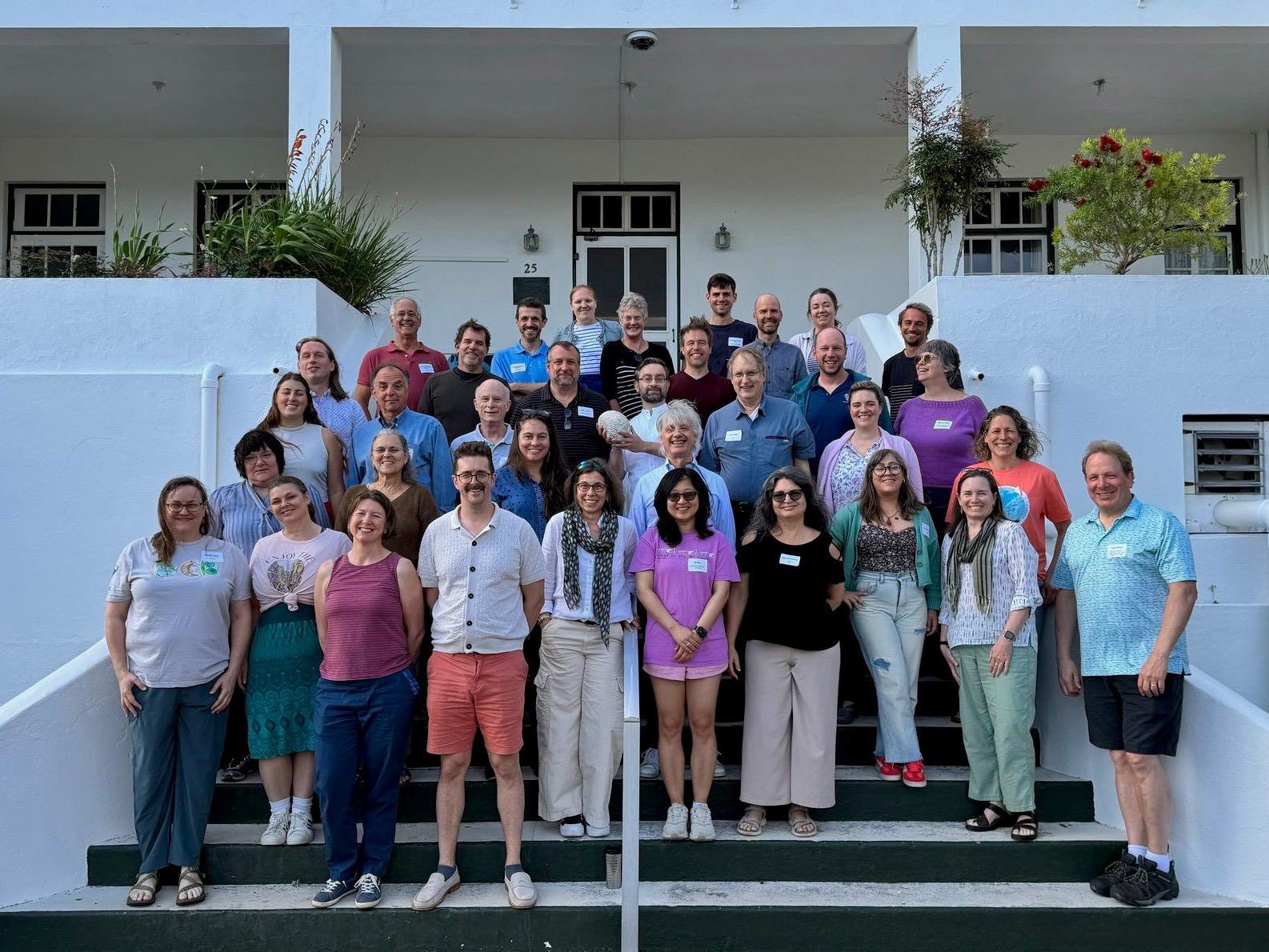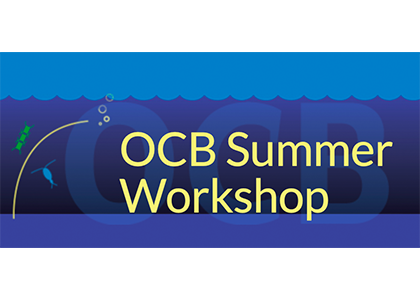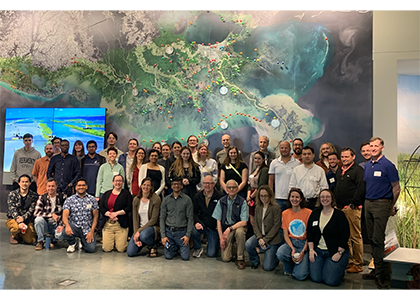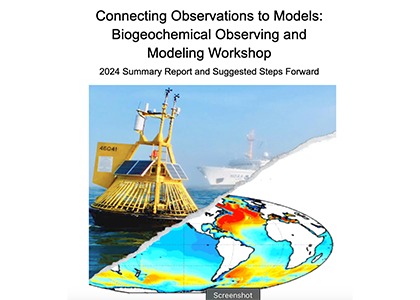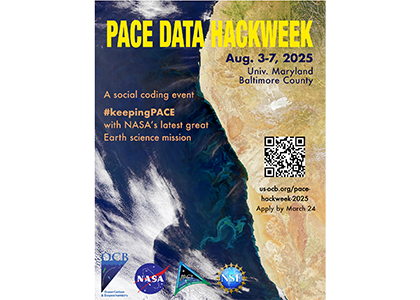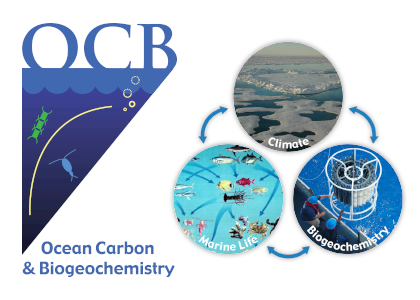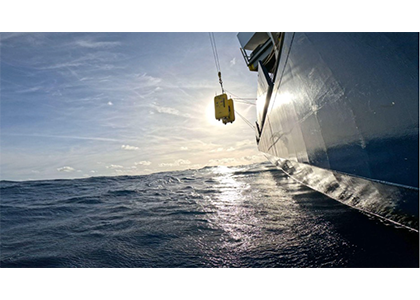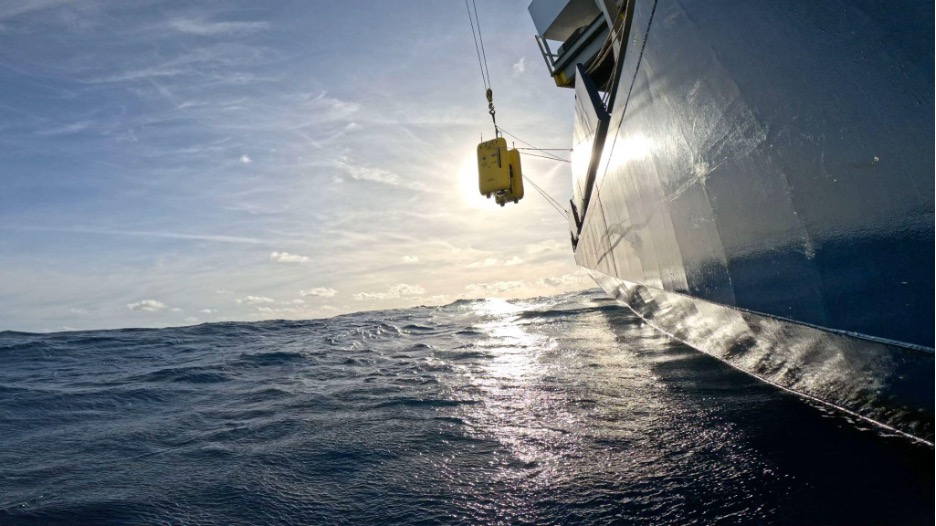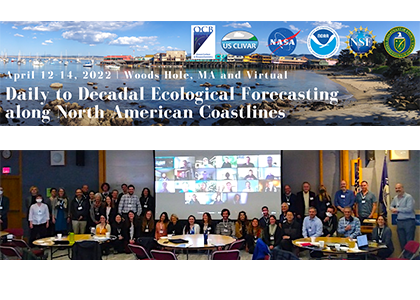International Workshop: FAIR Data Practices for Ship-based Marine Ecological Time Series
April 22-25, 2025 (ASU/BIOS, Bermuda)

Photo credits: O. Arsenault (above) and B. Siddle (ASU/BIOS) (feature photo)
Sustained ocean time series measurements are fundamental to distinguish between natural and human-induced variability in ecosystems and processes required to advance ecological forecasting. Since 2007, OCB has led and contributed to numerous efforts and activities in support of building a global network of ocean time series with the aims of elevating the visibility and utility of these observing assets for understanding climate-ecosystem links and improving coordination, communication, and scientific synthesis products across ocean time series programs1.
A lack of Marine Ecological Time Series (METS) data and metadata reporting standards, combined with numerous disconnected data management efforts, makes it exceedingly difficult for prospective time series data users to find and gain access to these valuable and unique datasets. For many of the biogeochemical and biological parameters that are unique to ship-based METS, there is an urgent need to develop consensus on community-adopted data and metadata reporting standards that will make these data more Findable, Accessible, Interoperable, and Reusable (FAIR)2. An NSF EarthCube-funded METS Research Coordination Network was established in 2021, with leadership from OCB, Biological & Chemical Oceanography Data Management Office (BCO-DMO), and the Hawai’i Ocean Time-series (HOT) program. The goals of this RCN were to: Develop and build consensus around FAIR data solutions for ship-based ocean time series; broaden METS data users and applications; and build capacity for METS data analysis, statistics, and data-model integration. Small group meetings over the past three years, including an in-person meeting in Boston in April 2023 have enabled members of the time series and data science communities to develop initial use cases for biogeochemical and biological variables commonly measured by METS. Parallel to this effort, a METS RCN leadership team member led the development of a pilot biogeochemical ocean time series data product3 with funding from EuroSea. As its final community activity, the METS RCN hosted an invitational FAIR Data Workshop that convened 60 (45 in person, 15 virtual) time series program representatives, informatics and data management experts, and data repository managers. The goals of the workshop were to:
- Build capacity & provide tools to guide FAIR implementation for marine ecological time series
- Share metadata templates for commonly measured ecological and biogeochemical parameters
- Share & discuss tools/resources for data visualization, synthesis & analysis, citation (DOI), decision support
- Update time series sampling & analytical methods recommendations
- Build community - share science outcomes, challenges & opportunities
The agenda included a mix of plenary and poster sessions, breakout discussions, and small group activities to share FAIR tools and approaches for METS data sets, including draft metadata reporting templates for commonly measured ecological variables and a FAIR data primer to help METS PIs learn more about their (and their repositories’) roles in implementing FAIR data practices. Ultimately, we want these data sets to be as discoverable as possible to increase and broaden their use (which keeps them supported!).
In addition to documenting the outcomes of the RCN and workshop in a report, we aim to finalize and distribute the draft metadata templates and FAIR data primer. Pending continued community interest and engagement, we aim to involve additional globally distributed METS programs in the implementation of FAIR data protocols, METS data products, and community building activities, including proposing a science session at the upcoming 2026 Ocean Sciences Meeting and increasing time series dataset discoverability via the UN Decade-endorsed Ocean InfoHub. Future products and activities will be shared via OCB communication channels.
Relevant Resources
1. Benway, H. M., L. Lorenzoni, A. E. White, B. Fiedler, N. M. Levine, D. P. Nicholson, M. D. DeGrandpre, H. M. Sosik, M. J. Church, T. D. O’Brien, M. Leinen, R. A. Weller, D. M. Karl, S. A. Henson, R. M. Letelier (2019).Ocean time series observations of changing marine ecosystems: An era of integration, synthesis, and societal applications. Frontiers in Marine Science, https://doi.org/10.3389/fmars.2019.00393.
2. Benway, H., J. Buck, L. Fujieki, D. Kinkade, L. Lorenzoni, M. Schildhauer, A. Shepherd, A. White (2020). NSF EarthCube Workshop for Shipboard Ocean Time Series Data Meeting Report. 59 pp. DOI 10.1575/1912/25480.
3. Lange, N., Fiedler, B., Álvarez, M., Benoit-Cattin, A., Benway, H., Buttigieg, P. L., Coppola, L., Currie, K., Flecha, S., Gerlach, D. S., Honda, M., Huertas, I. E., Lauvset, S. K., Muller-Karger, F., Körtzinger, A., O'Brien, K. M., Ólafsdóttir, S. R., Pacheco, F. C., Rueda-Roa, D., Skjelvan, I., Wakita, M., White, A., and Tanhua, T.: Synthesis Product for Ocean Time Series (SPOTS) – a ship-based biogeochemical pilot, Earth Syst. Sci. Data, 16, 1901–1931, https://doi.org/10.5194/essd-16-1901-2024, 2024.

